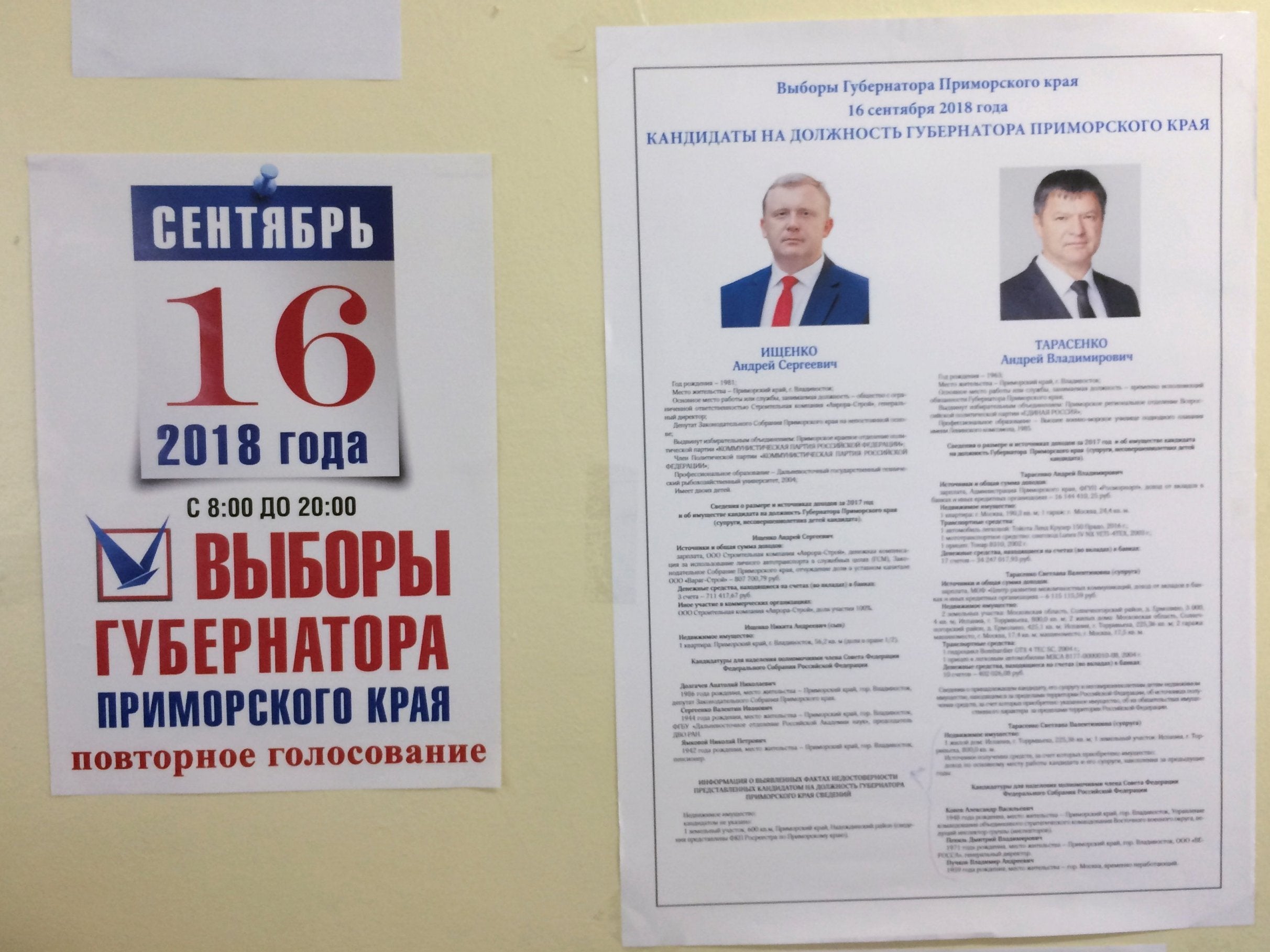'Miraculous' election win for Kremlin-backed candidate causes protests in Russia's far-east
Communist candidate led the contest until the very last, but was defeated after an improbable late switch in favour of the Kremlin's man

Even by Russian election standards – the kind that has given us 146 per cent voter turnouts – this was a magical turnaround.
With 95 per cent of the votes counted in the gubernatorial elections in Russia’s far east Primorsky Krai, the Kremlin’s United Russia candidate, Andrei Tarasenko, was a full five points behind his challenger, Communist Andrei Ishchenko.
But in a sensational final sprint, Mr Tarasenko added an improbable 13,000 votes, equating to nearly 100 per cent of the vote in the last 1 per cent of precincts. Even more miraculous was the fact his challenger Mr Ishchenko lost five votes in the process.
Just days earlier, Mr Tarasenko received a personal endorsement from President Vladimir Putin. "I know you have a run-off coming up. I think everything is going to be fine,” Mr Putin said.
Mr Tarasenko's apparently imminent defeat looked to be a slap in the face for the president and his controversial proposals to raise the pension age.
According to the official count, Mr Tarasenko had instead secured a wafer-thin majority, enough to see him sworn in as governor.
On Monday morning, the defeated candidate refused to concede.
“Friends, they are stealing votes from us,” Mr Ishchenko wrote on Facebook. “I won this election … Let’s defend our victory right now! We will not leave until we see a just result.”
The Communist candidate has announced a hunger strike and called on his supporters to start an indefinite protest. A few hundred have answered the call to the central square in the regional capital, Vladivostok.
Election commission officials claimed the anomalous swing in favour of the Kremlin candidate might be explained by results from the most remote and loyalist regions being counted last. But election monitors registered several persuasive complaints of fraud, including rewriting the official voting declarations.

In one instance, election commission members were reportedly locked in a room so as not to interfere in that process.
Independent election observer Golos said that the elections were swung by “massive falsifications”, delivered by the government machine. The NGO has called for a recount.
It is unclear how these protests will develop, but there are worrying precedents for Moscow.
Ten years ago, major protests in the region – this time against new car tariffs – were widely seen as the precursor to the widespread national protests that took hold in 2011. Then and now, several negative dynamics were at play – unpopular reforms, an economic downturn, falling presidential popularity and persuasive claims of massive election fraud.
This time around, plans to increase the pension age have severely hit the popularity of Mr Putin and his government. Nearly eight out of 10 voters say they disapprove of the move, while more than half say they are prepared to take to the streets to protest.
But Primorsky Krai in particular has a long-established independent streak. In the 1990s, it was home to an anti-government movement. In the previous two heavily controlled parliamentary elections, the ruling party has hovered around 20 per cent below the national average. In this year’s presidential elections, Mr Putin received 65 per cent of votes – a healthy majority in most electoral systems, perhaps, but the second-lowest figure in Russia.
There are signs of nervousness in Moscow. On Monday morning, the usually loyal national election commission announced it would not rubber stamp the results until all complaints had been investigated.
“We will not confirm the results until we have understood all the complaints,” Elena Pamfilova, head of the lections commission, told the Tass news agency.
She said she could not exclude a decision to overrule the results, and would be sending a team to investigate the allegations.
Join our commenting forum
Join thought-provoking conversations, follow other Independent readers and see their replies
Comments
Bookmark popover
Removed from bookmarks